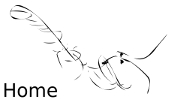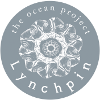Living Data
2014 Conversations
Disclaimers, Copyrights and Citations
Conversations/Index 2010 2011 2012 2013 2014 2015 2016 2017 2018 2019 2020 2021 2022 2023 2024
"Every interaction is a risk you might be transformed.
Creation is conversation, as is human life."
Jonathan Marshall, Anthropologist
Science and Art as conversation A series of fragments
by UTS academic Dr Jonathan Marshall
No one is an island...
All art, science, philosophy, culture, whatever you want to call it, arises in conversation with others. We begin life as children and we learn and select from what is around us. As children we were in constant conversation, although a fair amount of that conversation might be enforced - 'you will do this!'. What we did then or do now, depends on how we interpret (or misinterpret) what others say, what we do with others, and what we are prepared to risk to our prior understanding. Without the language we gained from others, without the ideas and symbols we gained from others, without the habits we gained from others, we could invent nothing - we could say nothing. Interaction is everything.
In this sense reading (or looking at art) is a conversation. You come to the text and interpret it, you can use it to bring into your purview something that was not previously there... that is the point of reading and 'looking'. Every interaction is a risk you might be transformed...
You can of course read solely for confirmation of what you already believe, but that is not conversation, that risks nothing; it is rarely creative - what you think is already out there.
Therefore, humans are both social and individual, not one or the other. The individual can be the origin of error which leads to invention, but the invention still originates within a circle of others, a circle of culture and precedent.
No idea or work originates purely in itself. All science refers to a tradition of science, without which it would not make sense. All art refers to a tradition of art, within which, and opposed to which, it makes sense. There are always conversations with the past, for the 'creator' and for the 'audience' (although it can be hard to separate these two). Creation is conversation, as is human life.
Brian Eno, the musician, suggested the term 'scenius', to give a word to an old idea; that of a creative group that acts together and stimulates each other. "Scenius stands for the intelligence and the intuition of a whole cultural scene. It is the communal form of the concept of the genius".
The genius is the individual who makes something that others recognise as a breakthough or as being a creative summary of a movement. The scenius is the context providing group, that does something similar for its members.
The group is hanging around, perhaps its memers do not know each other, perhaps they all feel alone, but they come together and out of the coming together and conversation, something is born which is greater than all of them individually and brings out the genius in them all. Or perhaps the genius gells them into the scenius...
But this is the point: genius occurs in clusters. Think of late Elizabethan/Jacobean drama British science mid 17th Century German Philosophy near the turn of the 19th Century... Vienna turn of the 20th Century...
Art and science aim to communicate - without a scenius to give it context it can die, be lost, or remain underdeveloped.
Yet everything important to communicate is beyond words, beyond symbols.
It is impossible to communicate; we can only hope to try and discover as much of what we can say or put together - in a context which gives it meaning, and point others towards it.
Science cannot tell us about the things beyond words, that are beyond human conception, but we make forays, and expand the words and the conceptions. Likewise with art.
And that requires dialogue, have we achieved anything - can people we respect tell us something about what we have done, are they capable of developing things beyond what we have done, so that we too can develop?
This is a kind of cooperative competition. We give each other gifts in the aim of getting better at what we are doing. This makes scenius. We give approval, we take risks, we exchange tools and techniques, we provide safe ground, we develop what others have done, we help promote each other.
Creation is also an effort which depends on being able to be wrong. Every art work is a failure and requires years of failure to achieve - if you want success instantly you will not fail enough to develop the skills to fail properly.
We may not be able to teach creativity, but unless we can teach skills, and persistence and conversation then we will not achieve anything. Creativity comes through skills, persistence and dialogue.
Without conversation our ideas remain closed, we repeat ourselves endlessly.
Innovation occurs through:
1) Error (we didn't understand or replicate something and that was fruitful) - this is not always easy or inevitably good. But it still requires others.
2) Having something beyond ourselves brought to our attention by conversation, criticism, reading, looking, feeling, day dreaming... etc. that opens what we think. That brings together a juxtaposition which did not previously exist, and could be productive.
Creativity always needs testing. Does it work? In science this is experiment, in art it is the exhibition. In both cases it depends on the scene. Do others accept, are they excited?
Because understanding depends on context and we cannot avoid bringing in new context to what we understand, it is always possible to bring a new meaning to art - that is why literary critics, or art critics, can always find something new to say about a work. The errors in conversation have the possibility to keep being productive. In science people try their best to slow down the error rate, that is one advantage of mathematics - but what renders the science less prone to transmission errors amongst scientists, makes it more prone to misunderstanding or incomprehension amongst non-scientists.
Hence again the need for art to spread the word, even if it is 'wrong' (meaning is always wrong or limited), and hence the need for scenius to converse to make it all work better, and open up new ways of behaving and communicating. And that comes through conversation, through being together, even when you disagree or cannot understand each other - perhaps even more so when you know you cannot understand. That is facing the risk of transformation, rather than staying closed.
Every piece of art, every invention of science coming from, or cross fertilised in, the scene leads to the possibility of transforming many more people through conversation; This makes a social transformation whose course we cannot predict as it spills outward and gets taken up and alters people's lives - hopefully for the better. So listen to what happens to your ideas as they spread, as they go beyond yourself. More conversation is borne, and so it goes on and on, throughout history, through others yet again.
Let's risk getting it wrong together.
Artists listen to an excerpt from ex Oceano
the symphony commissioned
by Lynchpin: The Ocean Project and recorded
by the Czech National Symphony Orchestra
in the Rudolfinum's Dvorak Hall, Prague,
24-27 September, 2013.
In conversation:
Anita Marosszeky, Leanne Thompson,
Catherine Nolan, Jason Benedek,
Kenan Wang, Lisa Roberts
Recorded Thursday 1st May 2014
University of Technology, Sydney
Camera: Jason Benedek, Lisa Roberts
Editing: Lisa Roberts












